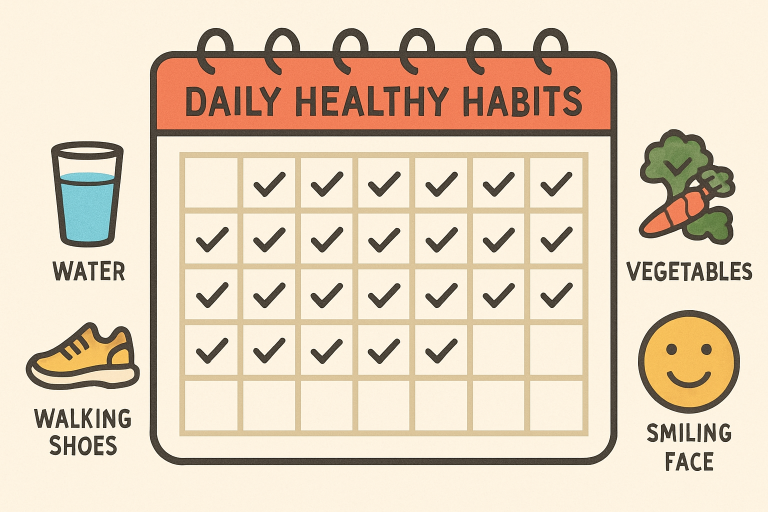Key Takeaways
- Begin with small, achievable changes to encourage long-term consistency.
- Focus on a diverse, nutritious diet centered on whole and minimally processed foods.
- Find enjoyable ways to incorporate regular physical activity into your daily life.
- Nurture a healthy relationship with food through mindful eating habits.
- Quality sleep and emotional well-being are essential for effective weight management.
Achieving and maintaining a healthy weight doesn’t have to mean overhauling your entire life overnight. The most successful transformations usually start with small, realistic changes that build momentum toward long-lasting results. By focusing on incremental improvements and seeking resources like a weight loss clinic Tampa, FL, you set yourself up to make meaningful progress that sticks.
While fad diets and extreme exercise routines often promise rapid results, they rarely offer lasting benefits. Instead, making gradual adjustments to your eating habits, activity level, and mindset supports a sustainable approach to weight management. This guide provides practical strategies you can start using today for lasting, healthy weight loss success.
Start Small for Big Results
Transforming one’s lifestyle can feel intimidating, especially as an all-or-nothing goal. Sustainable change begins with small, manageable shifts, like replacing sugary sodas with water or adding a 10-minute walk after dinner, gradually building healthier habits. Research shows that “quick fix” solutions are often unsustainable and harm motivation. Setting achievable milestones provides wins that boost confidence and motivate continued progress.

Embrace a Balanced Diet
Nutritious, whole foods are key to sustainable weight management. Instead of eliminating food groups, focus on variety and balance. Filling your plate with vegetables, fruits, whole grains, lean proteins, and healthy fats supplies energy, fiber, and nutrients. Simple changes, such as meal prepping, eating more vegetables, or participating in initiatives like “Meatless Mondays,” can diversify your diet and reduce calories. Over time, these habits promote lasting, healthy changes.
Engage in Enjoyable Physical Activity
Consistent physical activity is essential for achieving and maintaining a healthy weight, improving fitness, and promoting overall health. Choose activities you enjoy to stay committed, like walking, cycling, swimming, dancing, or gardening. Aim for 150 minutes of moderate exercise weekly. Experiment with different forms, and consider group classes or active hobbies for social motivation.
Prioritize Sleep and Stress Management
Poor sleep and chronic stress can subtly sabotage your weight loss by disrupting hormones that control hunger and metabolism. Prioritize 7–9 hours of quality sleep, which helps regulate appetite, energy, and mood. Consistent sleep routines and calming pre-bed habits improve results. Finding healthy stress outlets like meditation, hobbies, or time with loved ones helps prevent emotional eating. Emotional well-being is vital alongside physical weight loss strategies.
Practice Mindful Eating
Mindful eating involves focusing on the sensory experience and being present. This helps recognize hunger and fullness cues. Turn off screens, eat slowly, and savor each bite—these practices can help prevent overeating and improve your relationship with food. Checking in with your body during meals helps identify emotional or situational eating patterns, which aids in sustainable changes.
Set Realistic and Achievable Goals
Setting clear, attainable goals motivates. Aim for steady progress, such as losing 0.5 to 1 kg per week, to maintain your health. Celebrating small wins reinforces positivity and avoids discouragement from unrealistic expectations. Keep a journal or app to track achievements, reflect, and adjust goals to stay motivated.
Seek Support and Accountability
Surrounding yourself with supportive individuals is one of the strongest predictors of long-term weight loss success. Share your goals with trusted friends, coworkers, or family, or consider joining a health-focused group for encouragement and accountability. Professional support, such as guidance from registered dietitians or clinicians, can also provide valuable expertise and personalized feedback to support your journey.
Conclusion
Sustainable weight loss is more than a short-term project—it’s a lifelong commitment to self-care and well-being. By starting small, nourishing your body with balanced meals, finding enjoyable ways to move, prioritizing sleep and stress relief, practicing mindfulness, setting achievable goals, and seeking support, you can create a lifestyle that not only helps you achieve a healthy weight but also enhances your quality of life for years to come.



No comments:
Post a Comment
I love reading and responding to comments but in order to get my reply you must ensure you are NOT a no-reply blogger. If you are, here are some quick steps to change that!
1. Go to the home page of your Blogger account.
2. Select the drop down beside your name on the top right corner and choose Blogger Profile.
3. Select Edit Profile at the top right.
4. Select the Show My Email Address box.
5. Hit Save Profile.